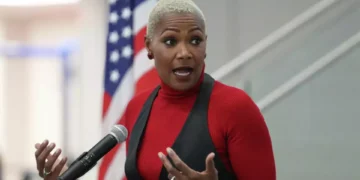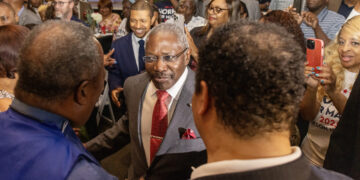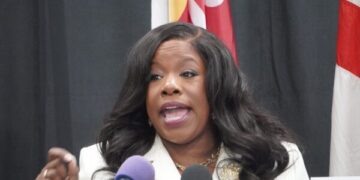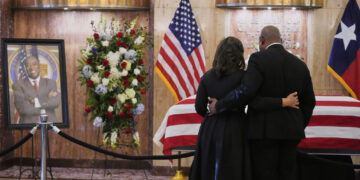Nov 21, 2024 Story by: Editor
TULSA, OKLA (KTUL) — Tulsans broke new ground on Election Day, electing Monroe Nichols as the city’s first Black mayor, 103 years after the 1921 Tulsa Race Massacre.
Nichols reflected on his victory with a focus on action, stating, “I haven’t considered winning so much rather than getting the job done.” He is preparing for his tenure by working closely with current Mayor G.T. Bynum, attending departmental meetings, and reviewing key city documents.
In his City Hall transition office, Nichols expressed enthusiasm for tackling major priorities during his initial 100 days. His campaign agenda includes addressing homelessness through low-barrier housing and dismantling encampments, launching the Office of Children, Youth, and Families, and establishing a Teach in Tulsa fund to support educators.
“My attitude is no matter what’s going on federally, what’s going on at the state, we’ve got to hold ourselves accountable for the kids in this community,” Nichols said.
Aiming to make Tulsa the safest large city, he plans to address community blight, invest in neighborhood development, and reduce recidivism. “Get rid of blighted property and be reflective of what we want our kids to aspire to be. We have to invest in the communities they come from,” Nichols added.
As Tulsa’s 41st mayor and its first Black mayor, Nichols intends to engage the city in meaningful conversations about reparations. While he supports initiatives such as scholarships for descendants of the 1921 massacre, he emphasizes fostering community dialogue to advance healing and progress. “I don’t want to meddle, but I want to be accountable and help,” he explained.
Nichols acknowledged the unique position his historic role places him in, saying, “Being the city’s first Black mayor allows me to have difficult conversations…to make sure Tulsa doesn’t become a city divided by divisive issues.”
When asked about the message his election sends to young people, Nichols expressed hope that it inspires them to believe in their potential. “I hope this election inspired them to use their voice and say, ‘You know what, if I’m Black, or if I’m female, or if I’m Native, or if I’m white and don’t come from a wealthy family, I still have something to say,’” Nichols shared. He believes this moment signals the end of perceived limitations, adding, “I think they got an indication last Tuesday that the ceiling does not exist.” Source: News Channel 8 Tulsa

















